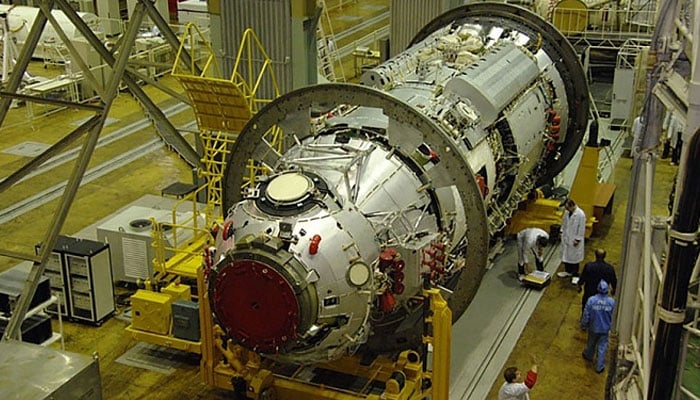
MOSCOW: Russia successfully hosted a Nauka laboratory and International Space Station laboratory module on Thursday - although the troubled unit caused further panic after an accidental shooting threw the entire station into its place.
The goal comes after more than a decade of delays and as Russia seeks to expand its space industry, which has lagged behind the collapse of the Soviet Union and strives to keep pace with competition from the United States.
A few hours after being fitted to the harbor, Nauka's weapons fired unexpectedly, forcing the crew at the international airport to shoot the workers at the Russian port section to protest the result.
The module began firing "indirectly and unexpectedly, moving the station by 45 degrees without attitude," NASA tweeted.
In a press release, NASA airline chief of staff Kathy Lueders called the incident a "happy hour", and commended the staff for bringing stability to the situation.
The U.S. space agency also revealed that SkyX Dragon nailed to the orbital station is enabled and ready to evacuate staff if needed.
The launch of the unintentional Boeing Starliner crew capsule test on the ISS will be postponed from Friday to August 3 while the investigation continues.
Earlier the Russian space agency Roscosmos announced a new phase in its ISS suspension phase with the (Earth-facing) port of the Zvezda service module at 1329 GMT.
It will now take a few months and many limited areas to fully integrate the module with the space station.
It will also provide more storage space, new water and oxygen rehabilitation systems and improved living conditions for Russian ISS spacecraft.
The multi-purpose laboratory module was released back in the mid-1990s when it was intended to reintroduce the Russian control module Zarya.
It was later redesigned as a science module but joined a list of standing Russian projects that have fallen victim to financial problems or administrative processes.
The launch of the 20-ton Nauka - one of the largest modules in the ISS - was originally planned for 2007 but has been delayed several times due to various problems.
While last week's launch was a success, Nauka encountered "circular challenges" on its eight-day trip to the ISS, the European Space Agency said.
"We can't lie ... We should have been worried for the first three days," Rogozin told reporters after Nauka stopped at the port, according to the RIA Novosti news agency.
The ISS is divided into two sections: the Russian Orbital Segment, with the rest operated by the US and other partners.
For years, NASA has relied on Russia to send its astronauts to the ISS and pay millions of dollars for a seat in the Soyuz rock.
But last year Russia lost its dominance over airplanes flying to the ISS following the successful deployment of American astronaut Elon Musk's Space X.
In April, Russia said it was considering withdrawing from the ISS system citing aging infrastructure, and was planning to launch the first major module of the new orbital station in 2025.
Russia has announced a series of projects in recent years, including missions to Venus and the Moon station, but as the Kremlin transfers money to military enterprises, analysts question whether these ambitions are possible






0 Comments